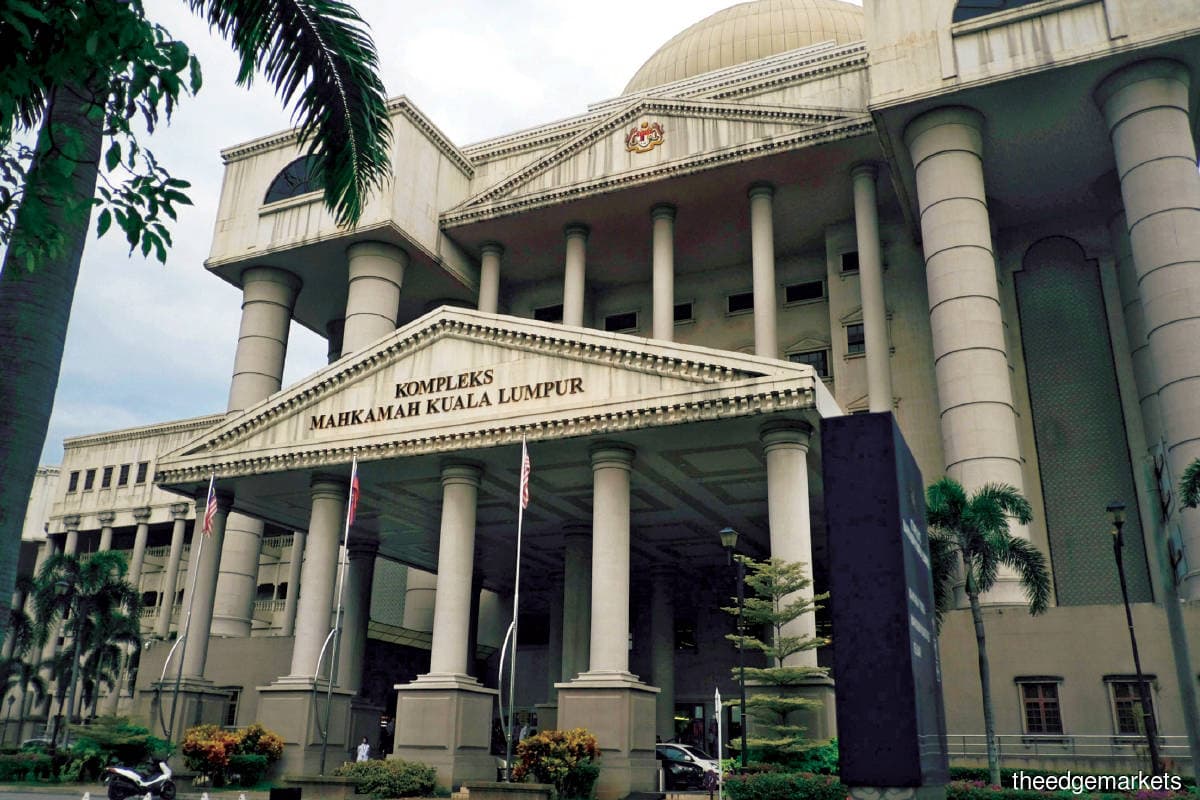
This article first appeared in The Edge Malaysia Weekly on November 22, 2021 - November 28, 2021
DATUK Seri Najib Razak’s signature on proposals involving 1Malaysia Development Bhd (1MDB) proved most influential and persuasive in convincing the board of directors that they should also go along with the plans.
During last week’s proceedings in the corruption and money laundering trial of Najib relating to billions of ringgit misappropriated from 1MDB, the high court was told that the directors felt compelled to sign off on the directors’ circular resolutions (DCRs) for a number of corporate proposals as the former premier had already given his consent to many of these proposals.
Tan Sri Ismee Ismail, the 13th prosecution witness and a former 1MDB non-executive director, said many of these DCRs were presented to him — and the board — accompanied by a special rights redeemable preference shareholders resolution (SRR) which had already been signed by Najib, signalling his approval of these exercises.
While board meetings were held to pass certain corporate exercises, there were many occasions when these proposals were simply approved via DCRs, which were presented to the directors by the senior management of 1MDB, namely CEO Datuk Shahrol Azral Ibrahim Halmi, chief financial officer Azmi Tahir, chief investment officer Vincent Koh or legal counsel Jasmine Loo.
This had become somewhat of a norm, Ismee said, adding that these included the approvals for the conversion of a 40% equity stake in 1MDB-PetroSaudi Ltd into Murabaha notes, the acquisition of Tanjong Energy Holdings Sdn Bhd, and the acquisition of Mastika Lagenda Sdn Bhd.
“There were instances when a DCR needs to be signed, and the board would be shown an undated ordinary resolution and shareholders’ resolution which has been signed by Datuk Seri Najib in his capacity as Minister of Finance and the shareholder,” asserted Ismee, who is also a former CEO of Lembaga Tabung Haji.
He said the board had relied on Najib’s signature in approving these proposals, as the ultimate power lies with the prime minister under Article 117 of 1MDB’s memorandum and articles of association (M&A).
Article 117 of the M&A states that the prime minister’s written approval is required for major decisions, including those touching on the company’s senior management, financial affairs and investments.
“This is a reverse of the usual process, as the approval from Datuk Seri Najib should instead be given after the board of directors had given their approval. However, from what I recall, this was the case in the execution of almost all DCRs,” Ismee stated.
During his examination-in-chief, senior deputy public prosecutor Datuk Seri Gopal Sri Ram asked the witness whether he was in the position to say “no” to the wishes of the then prime minister.
Ismee replied that if the board were to decline the prime minister’s wishes, they would have had to leave the board.
Back in 2009, Najib had just become prime minister and Ismee said that anticipation was high for his administration.
Ismee maintained the board had tried to put conditions in place to ensure the government-to-government (G2G) agreement between Malaysia and Abu Dhabi was “airtight”.
However, he conceded the directors had not asked any further questions on the transactions when presented with the DCRs.
“For example, we wanted a G2G with Abu Dhabi, I won’t question why the Malaysian government wants to do a G2G with Abu Dhabi, and why not with the Qataris or the Kuwaitis.
“But being board members, definitely we would question the management on the economics of the transaction, on the viability of the transaction. We even asked about the execution of the deals to make sure that the acquisition and valuation were done properly.
“That’s what I meant when I said that we don’t ask further questions — we didn’t ask questions on the transaction itself,” he added.
On Low Taek Jho’s (Jho Low) involvement in 1MDB, he said that Low was the one managing the relationship between the parties of the G2G deal, adding that the now fugitive businessman had a “good relationship with the Arabs”.
In his witness testimony, Ismee said that the directors did not ignore Low’s emails, although he added that he believed none of the board members really understood the content of the emails.
While he may have responded to the emails with a “thank you” or a “noted”, he said that would have been just out of respect. Ismee said that none of the board members had ever taken instructions from Low or even bothered to read and understand Low’s emails.
“I don’t think we as board members could have acted differently to protect the interests of 1MDB. With all this new information and revelations, [if asked] how I would act differently, I would have turned down my appointment as a director, I suppose,” he said.
Ismee said he believes the board was “being used” to make all the initiatives and transactions by 1MDB appear legitimate, as misleading information was being fed to the directors, even to the extent that information was concealed from them.
The prosecution wrapped up its examination-in-chief of Ismee on Nov 18, with Najib’s senior counsel Tan Sri Muhammad Shafee Abdullah expected to carry on with the cross-examination of the witness, once the lawyer returns from New York.
Save by subscribing to us for your print and/or digital copy.
P/S: The Edge is also available on Apple's AppStore and Androids' Google Play.

